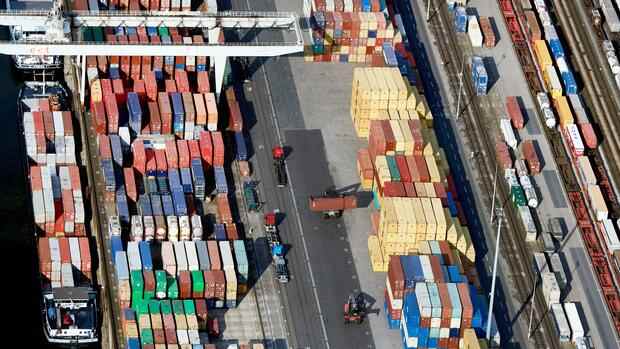Domestic orders fell by 5.9 percent.
(Photo: dpa)
Berlin In September, German industry did not recover as strongly as expected from the previous collapse in orders. The companies drew 1.3 percent more orders on land than in the previous month, as the Federal Statistical Office announced on Thursday.
Economists polled by Reuters had expected growth of 2.0 percent. In August there was a revised decline of 8.8 percent, which was greater than initially stated at 7.7 percent – it was the biggest slump since April 2020, when the corona crisis caused demand to drop.
The rise in foreign demand alone ensured the positive performance in September. It rose by 6.3 percent compared to the previous month. Orders from the euro zone fell by 7.3 percent, while those from the rest of the world rose by 14.9 percent.
Domestic orders fell by 5.9 percent. The development of sales in industry also shows that there is still a long way to go before recovery from the corona pandemic: In September, revenues fell 0.3 percent lower than in the previous month and, when adjusted for the calendar, even 2.9 percent below the previous year’s level.
Top jobs of the day
Find the best jobs now and
be notified by email.
“The situation will probably remain paradoxical for a long time to come,” said VP Bank’s chief economist, Thomas Gitzel, about the development. “The industry actually has enough orders to keep production running at full speed, but when there are missing parts, the output just trickles away.” For example, there is a lack of microchips, which are found in numerous products from cars to household appliances.
Because of the bottlenecks, the upswing this year will be a number smaller than originally thought, according to the prognosis of the federal government. It lowered its growth forecast for the current year to 2.6 percent from 3.5 percent previously. In 2022 there should be an increase of 4.1 percent, and then 1.6 percent in 2023.
More: Europe’s chip manufacturers are investing heavily – but delivery bottlenecks remain
